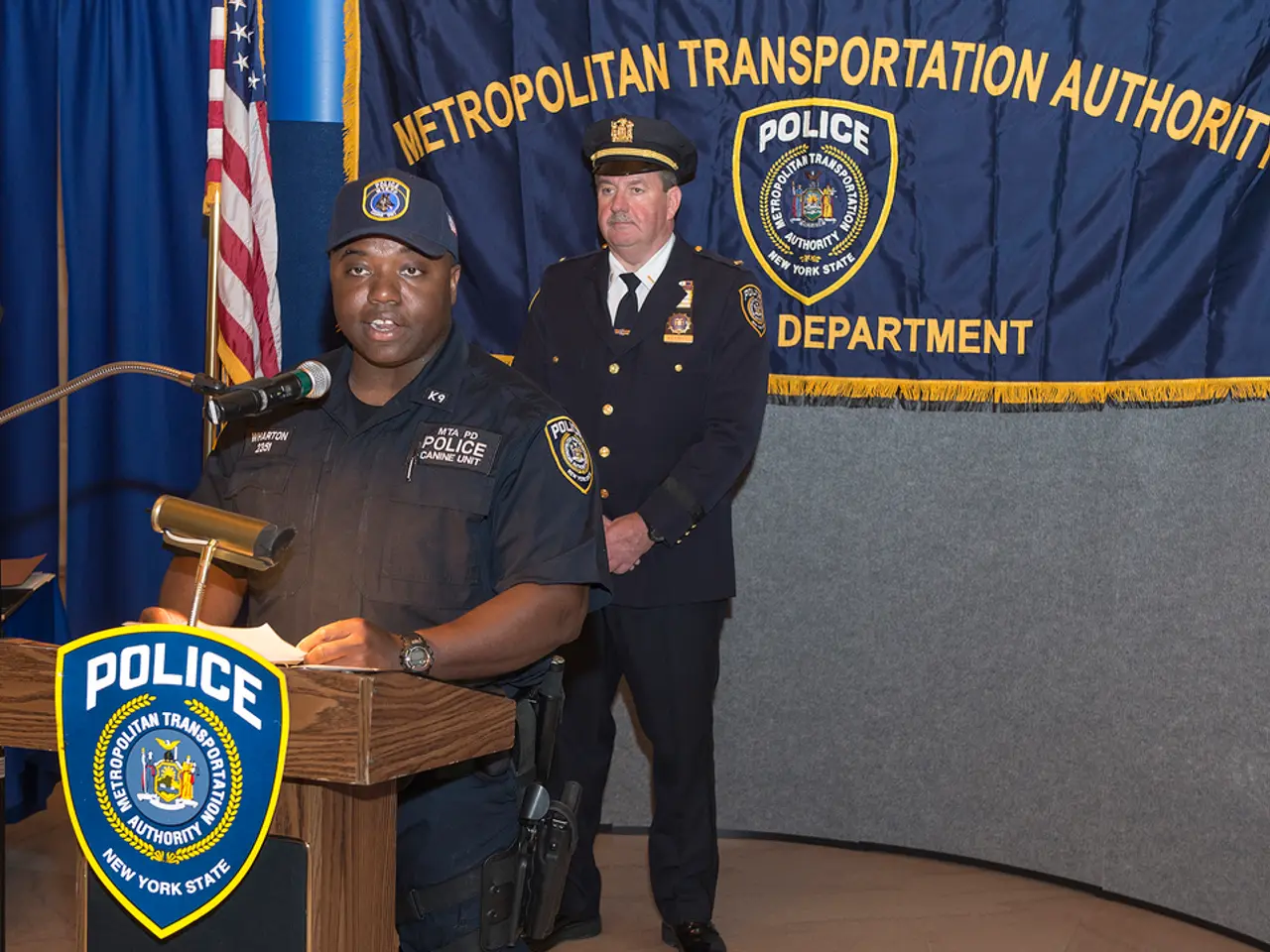Trump's enforcement actions in Washington D.C.: Insights from the political arena
In the heart of the nation's capital, the deployment of troops and federal agents under President Trump has sparked a wave of debate and controversy. This move, justified as a measure to control crime, has a complex historical and political context.
Historically, the District of Columbia's National Guard falls under federal control, allowing the president to activate and deploy forces more directly than in states. However, the recent militarisation of local law enforcement with untrained federal agents and armed National Guard troops marks a significant departure from traditional practices. The arming of the Guard, which had been avoided even during previous crises, has now become a reality.
Politically, this deployment has been widely criticised as an abuse of power aimed at intimidation and political theatre rather than genuine public safety. The American Civil Liberties Union (ACLU) described this as a federal takeover intended to instill fear and suppress dissent, emphasising the lack of D.C.’s autonomy due to its unique political status. Critics argue that this move reflects selective use of power, with rapid troop deployment in a city with improving safety contrasted with delayed responses during critical democratic threats.
The city's unique political status and the concerns about federal overreach have led to calls for statehood. This would provide D.C. with the same rights and representation as other states, thereby preventing such federal intervention.
Meanwhile, Ray, a 34-year-old New Yorker who works in finance and declined to share his last name out of concern for potential backlash for his political views, shared his thoughts on the matter. Ray, who voted for Donald Trump in the 2024 elections, marked the first time he had ever voted for a Republican. He is drawn to a candidate who is honest, authentic, and has the benefits of the little person in mind, a quality he feels is missing in today's politics.
Ray's politics started to shift after he helped his mother, a landlord, navigate pandemic-era policies on evictions and rent freezes, and pursued a restraining order against a tenant who pulled a knife on her when she tried to collect rent. He recalled a pivotal moment during a trip to Washington, D.C., when protesters hurled a racial slur at him and his now-wife.
Despite his support for Trump, Ray is not entirely satisfied with the administration so far. He acknowledged that he was expecting Trump to shake things up, but he is not happy with the current state of affairs. Ray also voted for Zohran Mamdani in the 2021 Democratic primary for New York City mayor, demonstrating a diverse political landscape even among Trump supporters.
The deployment of troops and federal agents in Washington D.C. has indeed stirred up a storm of controversy. The historical precedent, political implications, and civil rights concerns raised by this move have sparked intense debate, shedding light on the delicate balance between federal authority and local governance.
Read also:
- Court petitions to reverse established decision on same-sex marriage legalization
- Chinese Ambassador issues stern message to India regarding Trump's tariffs in midst of escalating trade feuds
- Unveiling the potential template for authoritarian leaders in Togo's controversial constitutional switchover.
- Potential Consequences Following the Baku-Yerevan Joint Declaration Signing in Washington








